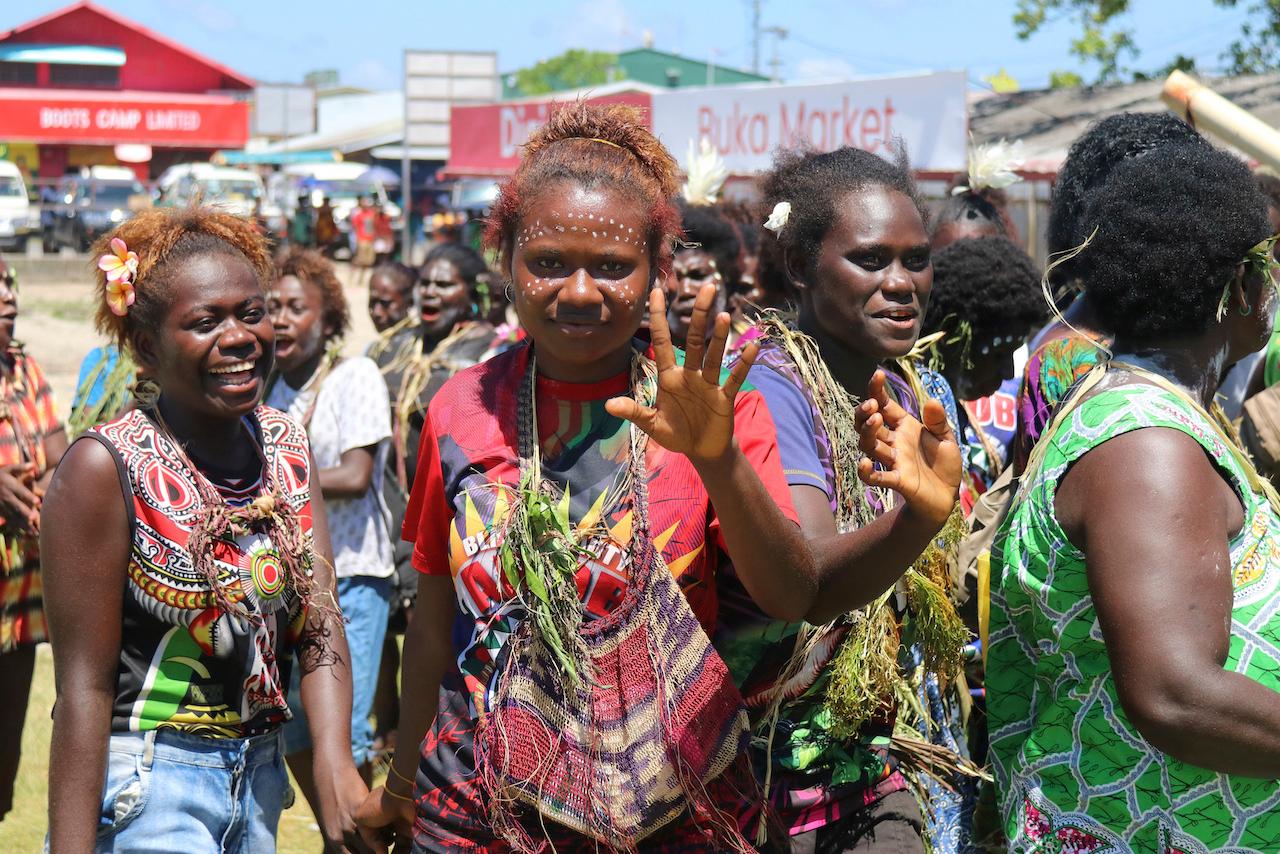Black magic fears in Papua New Guinea allow Covid-19 infections to soar
A healthcare crisis is unfolding just 4km from health-obsessed Australia's doorstep, and freedom of movement is permitted.
People’s deeply embedded beliefs in witchcraft are creating huge problems in Papua New Guinea (PNG) for their vaccine rollout.
Australia’s nearest neighbour is battling with a surge in Covid-19 cases, and fears of “unexplained” deaths are having sinister consequences.
Sanguma – a local word that refers to the occult – is common across the Pacific. It is a mostly benign tradition, but also has a darker side.
“One of our health workers died of Covid, so his wife and daughter were caught and tortured because of a belief in sorcery, and later they were confirmed with Covid as well,” explained Justine McMahon, PNG country director for Care International. “Sorcery certainly plays into the attitudes that people have.”
Black magic is entangled in a swirl of conspiracies, suspicions and false rumours that are compounding one of PNG’s greatest public health emergencies.
“There is a huge degree of scepticism towards vaccinations,” said Jonathan Pryke, director of the Lowy Institute Pacific Islands Programme, a Sydney-based think tank. “Social media is really fuelling the misinformation and the mistrust of the vaccine.”
Officially, there have been just under 11,000 Covid-19 infections and 107 deaths in PNG, but observers doubt this is accurate because of low levels of testing, infected patients not seeking treatment, and fatalities not being correctly identified.
“Covid has been growing exponentially since Christmas,” Pryke told the BBC. “The only thing really insulating PNG is that they have a very young population, so a lot of them are getting sick and recovering.”
McMahon is based in Goroka, the capital of the Eastern Highlands Province. She sees worrying signs of complacency, even among teachers and medical workers.
“Few people are following public health precautions,” she said. “Partly because there is a lot of doubt whether the virus affects people.”
When William Pomat, director at the Institute for Medical Research in PNG, developed chest pains, respiratory problems, and rising panic, he recognised them as signs of Covid-19.
“When you are feeling out of breath and your chest is tightening, you are thinking: am I going to be the next statistic? That is scary,” he told the BBC. “I am heading towards 60 so it does worry you.”
After 14 days in isolation, he is on the mend and back at work on the front line.
The South Pacific nation is wracked by other communicable diseases, and has disturbing rates of HIV, as well as infant and maternal mortality.
It is estimated there are 5,000 health workers in PNG for a population of 10 million people and Covid-19 is heaping more pressure on a fragile medical system.
“If we continue the way we are, with health workers getting infected and staying away from work, all the other infectious diseases like tuberculosis and malaria spiral out of control,” Pomat warned.
Covid-19 has been diagnosed in each of PNG’s 22 provinces. New strains of the virus might have been imported across a porous land border with Indonesia.
Pomat thinks the problem is local. “We became complacent, and we stopped wearing masks. From the leadership level, many of us were just as guilty as the ordinary people.”
All of this is unfolding right on health-conscious Australia’s doorstep.
PNG’s Western Province is just 4km from Australian islands in the Torres Strait, and freedom of movement is allowed under treaty agreements.
The Lowy Institute’s Pryke said, “It is in Australia’s national interest to do everything possible to make sure that PNG has a health system and society that handles this crisis as best they can.”
Subscribe to our newsletter
To be updated with all the latest news and analyses daily.
